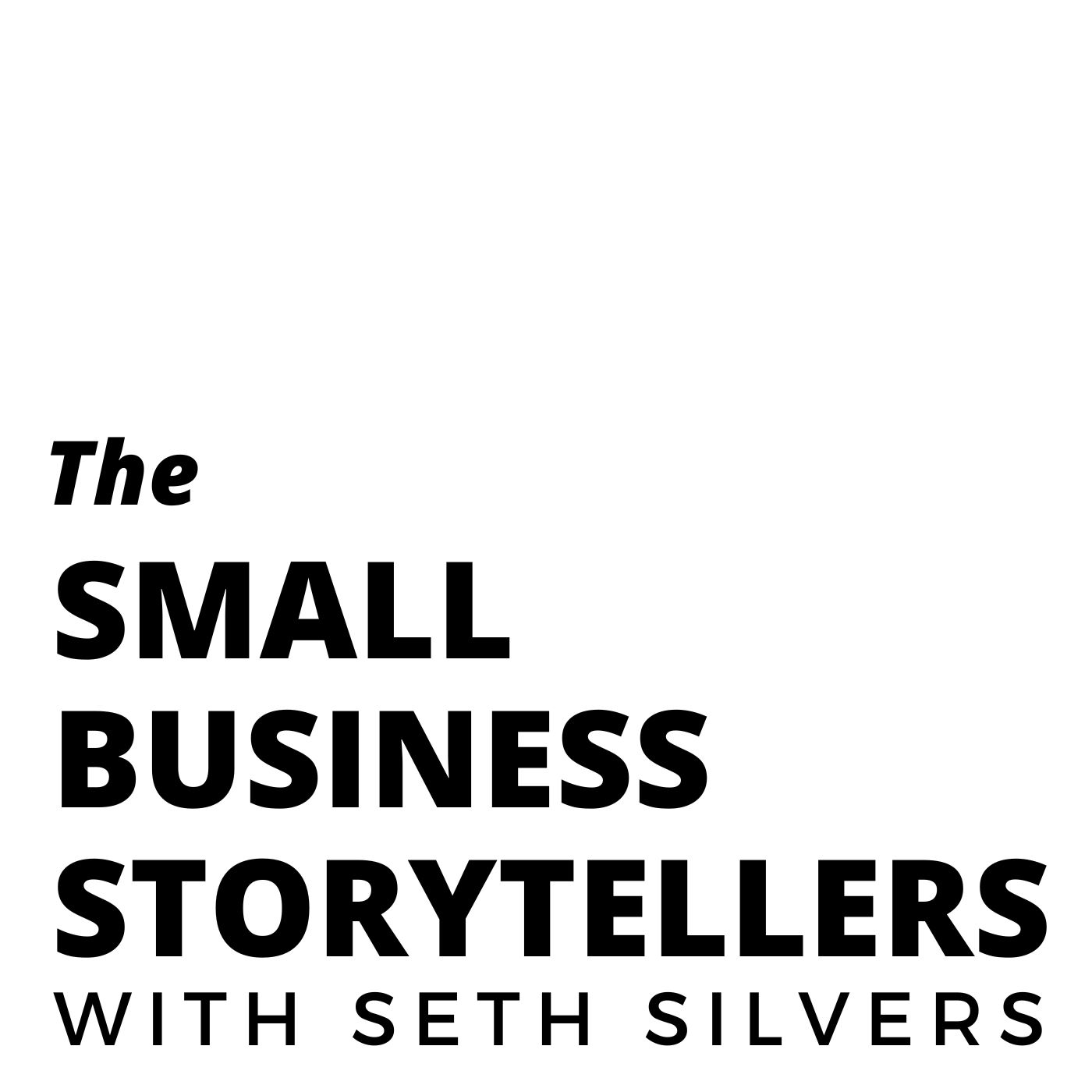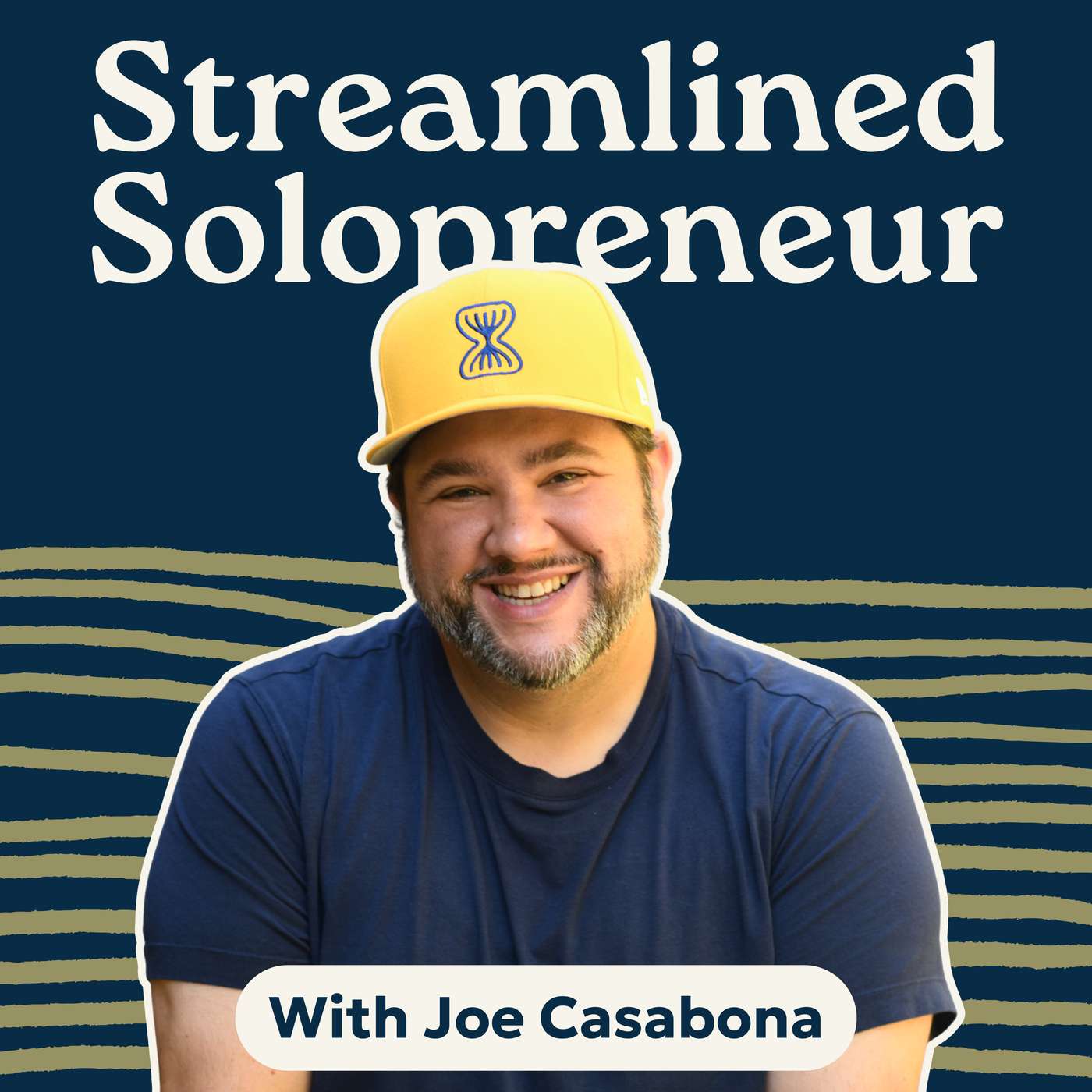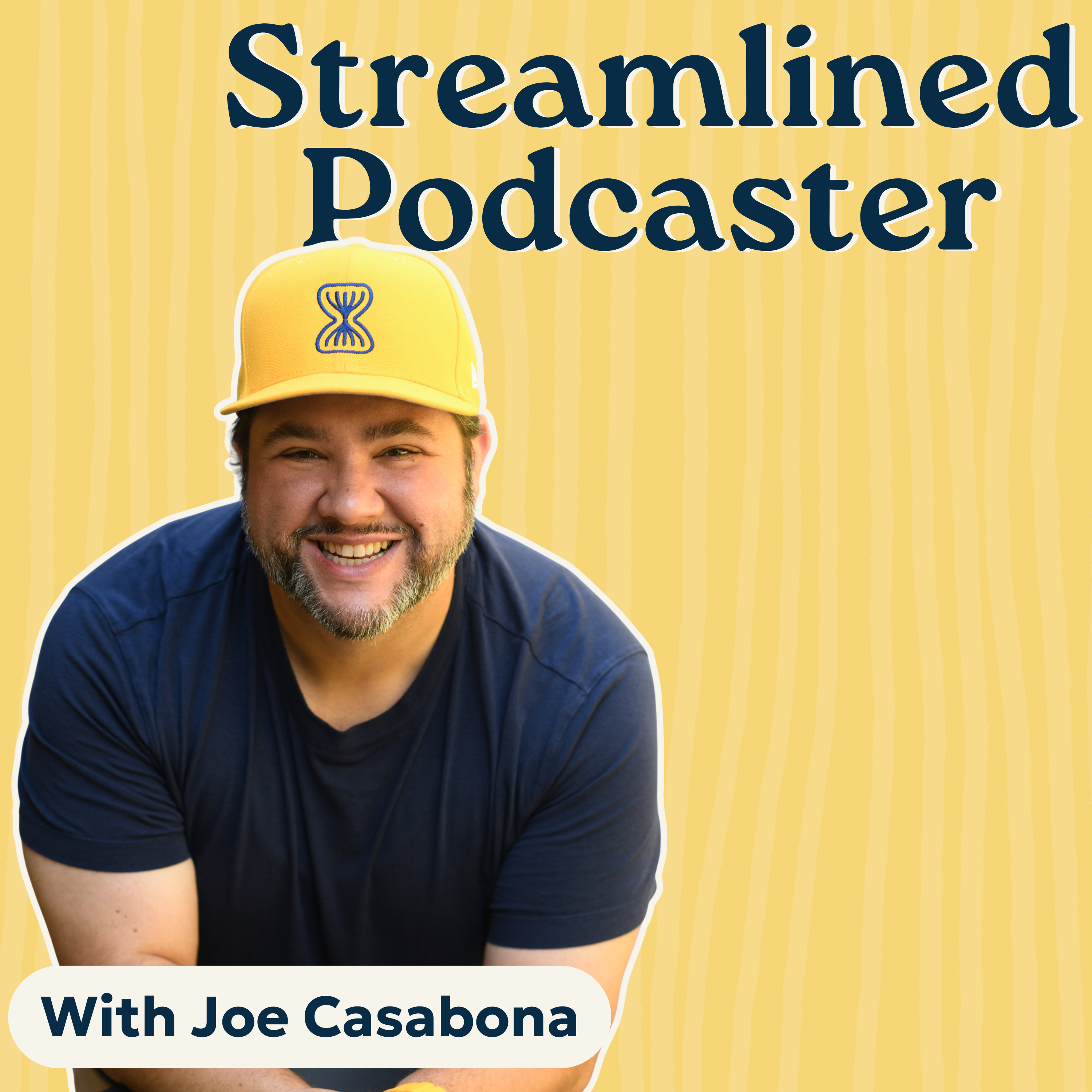
Podcasting Made Simple
Podcasting Made Simple is the premier podcast about podcasting! We’re here to help podcast guests and podcast hosts reach more listeners and grow their income so they can change more lives! Join Alex Sanfilippo and other podcasting industry experts as they share how you can level up on either side of the mic! (Show notes and resources: https://PodMatch.com/episodes)
Podcasting Made Simple
How Do You Really See Your Guests? | Paul Granger
Do you see your podcast guests as people or just content providers? If it's the latter, you are missing a big opportunity! In this episode, Paul Granger shares how your perspective on guests shapes the quality of your conversations. Learn how to engage guests with authenticity, create meaningful dialogue, and make every guest feel valued. Get ready to elevate the success of every interview on your podcast!
MORE FROM THIS EPISODE: HTTPS://PODMATCH.COM/EP/332
Chapters
00:00 The Value of Guests in Podcasting
02:56 Understanding Guest Engagement
05:51 Creating Authentic Conversations
08:45 Seeing Beyond Labels
12:09 Honoring Guests and Their Stories
Takeaways
Guests are not things to be used, but people with stories.
How you see your guest shapes the conversation.
Engagement should go beyond just content generation.
Authenticity in conversation leads to deeper connections.
Hosts should facilitate rather than dominate the dialogue.
Seeing guests as individuals enhances the podcast experience.
Avoid relying solely on stock questions during interviews.
Creating a comfortable space encourages guest openness.
Recognizing the value of each guest enriches the podcast.
Hosts have a responsibility to serve their guests.
MORE FROM THIS EPISODE: HTTPS://PODMATCH.COM/EP/332
🎁 Want 9 quick ways to level up as a podcast host, guest, or agency? Visit https://PodMatch.com/Free! (No signup required)
You're listening to Podcasting Made Simple. Let me tell you about my two most dishonoring experiences as a guest. The first was a podcast that had all the appearances of being organized and professional until the host rescheduled at the last minute. It happens, so I wasn't too concerned. However, when we finally recorded, it was very clear he was not actually present. Throughout the conversation, he was distracted. In fact, between stock
questions he would frequently mute his mic and begin having conversations with someone else in the room. As a guest, nothing feels more awkward than talking to yourself. While he felt it was fine, I was left feeling like he was just using me to get content for his podcast. I was concerned it would become an awkward episode. As it turns out, he forgot to press record. The second was a podcast that presents itself as a high-tier exclusive platform. You have to jump through multiple hoops
just to get a pre-interview, which I did. After an initial form, several emails, and a few required videos, I finally had a time set for the pre-interview. However, I was surprised to see the host didn't show and instead sent an assistant. It turns out despite all my initial communications, he had not actually looked at my responses. And at the very last minute, he decided that the fact I wasn't making six figures meant I wasn't worth having on.
Instead of telling me before the pre-interview or even telling me himself, he sent someone else, who I could tell was told last minute. The assistant tried his best to honor me, but we both knew what had happened was wrong. I felt utterly disregarded, even though I had something valuable to share. In both cases, I was seen and treated as something to be used or not used to enhance a podcast. The thing is, guests are not
things to be used, but people with stories, wisdom, and most importantly, value. I felt deeply unvalued in those two cases, and I'm committed to making sure I never make others feel the same. I'm Paul Grainger, host of Where Did You See God and What's God Doing? and a guest on a range of podcasts. As a host and a guest, I've navigated this topic from both perspectives.
and believe there is a core question that can shape not just how a guest experiences things, but the conversation that results. How do you really see your guest? Now, you'll have a gut response to this, usually a positive one, but actions speak louder than words. Over the course of this time, I'm going to press us in deeper to help you as a host discover how you can consistently honor the value of every guest. Not only will this bless them,
but you will find the resulting dialogue will carry more authenticity and depth than mere good questions could ever produce. To understand how you really see your guest, start with this question. Why do you have guests? It may seem simple, but the answer will shape your engagement. If we're honest, the answer is often to get consent for my podcast. This is not inherently a bad thing. After all,
Without content, your podcast can't exist. However, this motive is limited. If it's just about content, it may not actually matter who is sharing it, which could lead you to run on autopilot or even be disconnected like the first host I mentioned. As long as words are being spoken on a mic, you're happy. So you may not care much about the words as they're spoken. Or you can become like the second host.
who broad sweeps potential guests for specific content. Let me be clear, honing your guests isn't bad, but if you aren't able to see potential guests authentically, you may toss out diamonds. If your podcast exists solely to generate content and listens, that initial answer could be sufficient and plenty of guests would be content because their motive may simply to be to get their content out there. However, the fact
you are listening to this indicates to me that your podcast is about more than pumping out audio. If that's true, then your answer to, why do you have guests, could benefit from more depth. For me, getting listens has not been the goal of either of my podcasts. Rather, I know the importance of cultivating authentic, accessible space so that stories can be told. This means that in order to be effective, my answer must be,
because guests have something valuable to share and I have the ability to create the space for them to share it. How does this change my engagement? Out of the gate, it impacts how I see the guest. Instead of only being a source of content, they are someone that offers value. Think of it this way. If you order food through a delivery service, you may not think much about the deliverer beyond, they have my food.
Perhaps if they do a particularly good or bad job, you may remember them, but usually we're content with them just leaving the food on the porch and going. They serve a simple, specific purpose. Give me my food. It's different when somebody personally makes something for me, giving of their time and energy to bless me with something they could have kept for themselves. When I've been on paternity leave, I've felt deep gratitude when friends and family would bring us meals.
Was I hungry in a need of food? Sure. But I recognize the person behind the food and the intention behind their sharing. Your guests are not mere content deliverers who show up on demand with audio for you to consume. They are real people giving of their time and energy to offer something personal, something valuable. This perspective will shape how you look for and invite guests
in a meaningful way. It must also shape the recording. A guest that exists solely for content can be minimally engaged with stock questions, but a guest gifting you with value deserves more. Once you do the mental work to see your guest in this way, cultivate the space with actions. Find ways to convey that you appreciate them as a person, not simply as a guest.
This will free them to engage more authentically during the recording. Then, stay at the table. I've often engaged hosts who were distracted by any number of things, like their environment, their process, and even their phone. Do what you need to do to be fully present and then stay there. Yes, eye contact and body language are a big part of this, so be mindful of what you may be conveying on screen. But this goes deeper.
Don't just be physically present, but mentally present. Listen to their responses. Even better, care about their responses. Hear deeply, not superficially, because people can tell when your mind is elsewhere. Don't try to fake it. Actually connect with your guest. This is all great while the guest is talking, but sometimes it's your turn on the mic. Before anything else, we have to jump back to that question.
How do you really see your guest? Because this also impacts what you say. If your guest is simply a component of your podcast, it's possible that you could spend too much time on the mic. I've been on a few podcasts where the host was loquacious, and in the midst of their monologue, I'd think, why am I here? It felt as though their lean was to do a solo show, and they hadn't quite considered how the guests fit in.
I like to think of myself not as a host, but a facilitator. My goal is to shepherd a conversation beyond the superficial to something meaningful for my guest, which means being mindful of how much I say as well as what I say. Instead of spending 10 minutes on my own opinion, how can I use my thoughts to invite more from my guest? This shapes what questions look like. I mentioned stock questions earlier. These aren't bad.
but they are limited. It can be jarring when a host moves on to a pre-written question that doesn't connect to what I was just saying. It is fantastic to be prepared. And in a pinch, a good question can avoid awkward silence. The invitation here is to see these as guidelines and to be so engaged that the questions become reshaped by the dialogue or even replaced by new ones. My favorite moments in a conversation with a guest are when I'm listening deep enough
to hear something that catches my attention and to come back to it with an unplanned prompt. I'll often quickly jot down the phrase and later say, earlier you mentioned such and such, how did that shift your perception years later? Not only does this take the conversation deeper, it shows the guest that you are actually listening. This leads to another vital point. If our guests are only about content, we may predetermine what the content should be
and miss out on an amazing conversation. How do you really see your guests? Do see them as a broad sweep or a label? Broad sweeps and labels aren't bad. They give a helpful starting point, but they are limited. All of us are more than our stereotypes and labels. However, it is far easier to settle into the sweep than dig beyond the surface. Here's why you should care.
Your guest is likely on many other podcasts with hosts that see them for the label, which means most, if not all of those podcasts are going to sound the same. If your podcast with that stereotype is just like all the others, why would someone listen to yours over the others? And will the guest remember their time with you and be inspired to share it, or will it feel like the same old interview? However,
If you see the guest as a nuanced individual, your questions can lead to dialogue not found in all their other appearances. A great example of this is Hot Ones with Sean Evans, whose unique questions frequently catch the guests off guard in a way that leaves them with impressed smiles. Side note, Sean is a great one to watch in terms of body language. Take note of how he utilizes mirroring to help the guest feel comfortable.
Admittedly, this approach may cost you. If you are really hoping for a conversation on a specific topic, it can be hard if the conversation goes elsewhere. However, it is far more valuable for a guest to be their full selves discussing something that energizes them than to get their reiterated responses to the common questions. Honestly, it would take several talks like these to flesh out how to engage your guest.
And that could be the wrong approach. We tend to opt for a checklist when what may need to happen is forging a new foundation. Eye contact, body language, and creative questions will remain limited if our foundation around viewing our guests is off. Conversely, building a healthy foundation will actually shape everything else. You won't have to think about eye contact because you will actually want to see your guest.
You won't stress about questions because you will be so involved in the conversation that responses are natural. That foundation is what I shared at the start. Guests are not things to be used, but people with stories, wisdom, and most importantly, value. Take time today to humbly ask yourself, how do I really see my guests?
Discern how you can convey to them before, during, and after your recording that they are not things, but amazing people with deep value. Shape your emails, your presence, your questions, and your editing around this, and it will transform their experience and your podcast. I'll close by sharing what this has looked like for me. As a Christ follower, what drives my engagement as a host is the belief that everyone I encounter
is made in the image of God and deserving of love. That image and value is greater than the labels and stereotypes and what they have to offer may be deeper than they know. Every conversation begins with prayer to protect me from operating in a limiting way and I strive to connect authentically as though the microphones aren't present. In fact, that's part of the riskiest thing I do as a podcaster. I tell every guest that our time isn't even about making a podcast episode.
though that is a likely byproduct. We are not making a podcast, but engaging in authentic, accessible space together. And at the end of every conversation I ask, would you be open to this possibly blessing others by being made into an episode? If they say no, they can keep the recording for themselves. However, because they just experienced a genuine conversation rather than a typical interview, the majority give a resounding
Yes, they don't feel used, they feel valued. This approach has allowed me to honor guests by freeing them from the pressures of podcast interviews, the belief you have to be an expert or say impressive things in a perfect way. There are millions of potential guests that won't approach a microphone because that feels beyond them. By seeing my guests for who they are and making space for their stories,
For their sake, rather than the growth of my podcast, I've been blessed by beautiful accounts and deep wisdom, and my listeners have as well. Even more important, my guests can leave authentically seen, heard, and valued. Our opportunity as hosts, I dare say responsibility, is not to use our guests, but to serve them.
We offer the gift of intentional space to amplify their voices. When we do this with integrity, everyone, you, the guest, and the listeners discover more than we imagine. For more episodes, please visit podmatch.com forward slash episodes. Thank you so much for listening.











